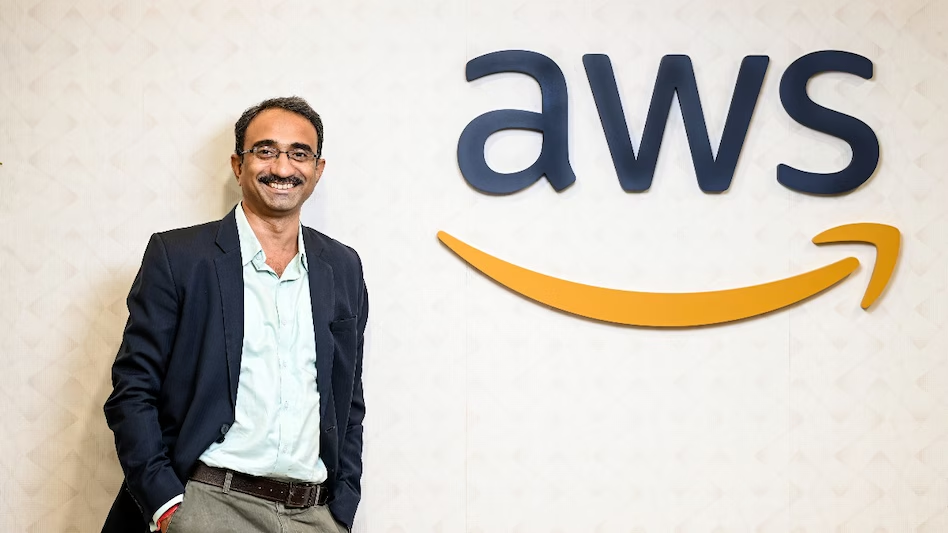
Retail giant Amazon’s cloud computing division, Amazon Web Services (AWS), has joined forces with the Data Security Council of India (DSCI) to launch a new initiative aligned with DSCI’s National Centre of Excellence for Cybersecurity Technology Development (N-CoE), in partnership with MeitY. This initiative is designed to support start-ups and independent software vendors (ISVs) in utilizing generative AI to drive innovation in cybersecurity and develop commercially viable solutions. VG Sundar Ram, Head of Business Development for AWS India and South Asia, spoke with Business Today about the potential of generative AI in cybersecurity. Edited excerpts:
VGS: Healthcare data, which includes personal health and financial information, is particularly sensitive and valuable. Generative AI offers tremendous potential to enhance cybersecurity in various sectors, including healthcare.
For instance, in threat detection and analytics, generative AI can facilitate real-time anomaly detection in user behavior and develop predictive models based on historical attack patterns. In incident response and recovery, AI can assist security professionals by automating incident playbook creation and visualizing real-time attacks, thus improving preparedness and accelerating the development of effective solutions.
Generative AI also plays a significant role in threat intelligence. It can help profile the behaviors of threat actors, automate threat intelligence report generation, and monitor the dark web for valuable insights.
BT: Can you share examples of how generative AI is already being applied in the enterprise space, particularly within healthcare and pharmaceuticals?
VGS: AWS plays a key role in driving advancements in patient care, diagnostics, and therapeutics by providing scalable, secure, and cost-effective compute, storage, data analytics, and database services. This accelerates breakthrough discoveries.
For example, Genomics England, a leader in human genome research, is using Claude 3 models on Amazon Bedrock to identify connections between genetic variants and medical conditions. This AI-powered solution can quickly process millions of pages of literature to identify potential gene associations, which significantly speeds up the research process. To date, it has identified 20 clinically relevant gene associations.
In India, AWS is collaborating with Eka Care, a healthcare start-up focused on non-communicable diseases like diabetes and hypertension. Using Amazon Bedrock, Eka Care developed Eka Doc, a digital solution that simplifies patient management by allowing doctors to easily access and update medical histories, diagnoses, and treatments, saving valuable time.
BT: How can cybersecurity start-ups in healthcare and pharma benefit from the DSCI National CoE initiative to innovate and grow?
VGS: A secure cyberspace is vital for the growth of India’s digital economy. As organizations across sectors, including healthcare, increasingly innovate through digital products and cloud computing, ensuring data security is crucial. In the healthcare and life sciences space, digital transformation is reshaping collaboration, enabling precision medicine, and reducing healthcare costs. This transformation requires working with open datasets, complying with healthcare regulations, and safeguarding sensitive data.
Through AWS’s partnership with DSCI, Indian healthcare start-ups and ISVs will gain access to resources, training, and AWS services in generative AI. This will empower them to use cutting-edge large language models (LLMs), foundation models (FMs), and AI tools to accelerate product development, rapid prototyping, and scaling. AWS experts, along with mentors from DSCI, will provide hands-on learning in security solutions, technical concepts, compliance, and privacy.
Additionally, these start-ups will have opportunities for commercialization and growth through the AWS Marketplace, which connects them with specific customer needs, and other tailored programs for both domestic and international markets.
BT: What challenges do you foresee in implementing generative AI in healthcare cybersecurity, and how does AWS plan to address them?
VGS: One of the biggest challenges is the lack of specialized talent to harness generative AI for disruptive applications in healthcare and cybersecurity. The shortage of skilled professionals capable of applying AI in healthcare cybersecurity is a significant hurdle.
A study titled “Accelerating AI Skills: Preparing the Asia-Pacific Workforce for Jobs of the Future,” commissioned by AWS, found that over 90% of Indian employers prioritize hiring AI-skilled talent, yet 79% struggle to find suitable candidates. Another report, “Building Digital Skills for the Changing Workforce,” highlights that cybersecurity skills will be among the top five most in-demand digital skills by 2025.
To address this gap, AWS has launched the “AI Ready” initiative, aimed at providing free AI skills training to 2 million people worldwide by 2025. This initiative includes eight new free AI and generative AI courses, the AWS Generative AI Scholarship, offering over 50,000 students access to a generative AI course on Udacity, and a collaboration with Code.org to help students learn about generative AI. These efforts aim to bridge the talent gap and ensure a workforce capable of effectively utilizing AI-powered cybersecurity tools.
Recent Random Post:
















